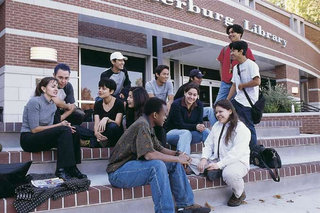Ten-year strategy for modern, high-quality vocational training, giving workers the skills to find a suitable job in a rapidly changing economy.

Ten-year strategy for modern, high-quality vocational training, giving workers the skills to find a suitable job in a rapidly changing economy.
Today, about 76m Europeans of working age have little or no qualifications, whereas the jobs on offer increasingly require some form of training. The need for qualified workers is predicted to grow over the next decade, which means young people and adults without relevant skills will find it harder to get a job. When they do, it’s likely they’ll earn less than their better qualified counterparts.
The new vocational training strategy aims to provide current and future workers with both the job-specific and broad expertise they’ll need in the modern economy. It seeks to improve the quality of vocational training and teaching, encourage creativity and entrepreneurship, and make it easier for people to learn at all stages of their academic and professional careers.
The strategy also aims to ensure those from poorer backgrounds, people with special needs and older workers have the same access to vocational training as everyone else.
The strategy includes an action plan to focus the efforts of national governments and the EU over the next four years. Targets include:
- cooperating with companies to identify skill gaps
- opening more vocational schools
- introducing strategies to boost training abroad
- raising awareness of the benefits of vocational training
- creating a common standard for vocational training across the bloc by applying the 2009 EU recommendation on quality assurance
- assessing ways to increase the uptake of vocational training.
Vocational training can also strengthen Europe’s competiveness and economic growth. A workforce with a range of relevant skills will make it easier for companies to recruit the people they need, helping them compete on a global scale.
The strategy is the latest revision of the Copenhagen process, a broader, long-term scheme to develop vocational education and training systems in Europe. Founded in 2002, it involves 33 countries (all 27 EU members plus Croatia, the Former Yugoslav Republic of Macedonia, Iceland, Liechtenstein, Norway and Turkey), unions, employee representatives and the Commission.